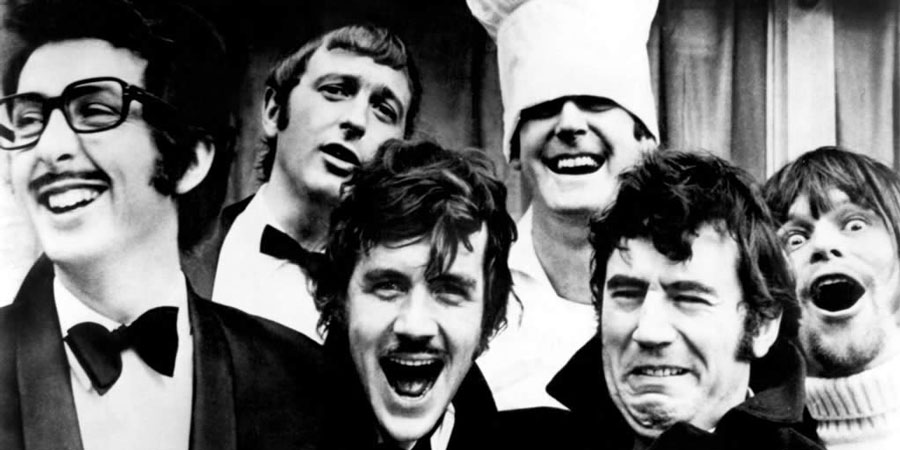The great British bluff: Comedy and deception

As you'll know as a consumer of funny shows born on these shores, British comedy is often built on a foundation of wit and wordplay. However, one of its most effective tools is the art of bluffing and misdirection - that being the core of how many jokes work. By leading the audience down one path before revealing the unexpected truth, many British comedy shows thrive on deception, creating some of the most hilarious moments in television and on the stage.
British cultural history is filled with impeccable humour, and some of the best are still beloved decades after they were made. From panel shows, to classic sitcoms, and sketch shows: many formats remain influential and much-loved to this day. When you look deeper, it's amazing how many of them feature elements involving initially deceiving the viewer.
For instance, in one Monty Python's Flying Circus sketch we see a man speaking deeply and philosophically - and it eventually proves that the conversation is about making a cup of tea. The initial misdirection is what makes us laugh at the end of the sketch.
Stand-up comedians are particularly good at using the art of deception in their sets. The line between reality and imagination is often blurred in their stories - but it's never quite clear what did and didn't really happen. For example, we've heard Michael McIntyre tell a routine about the time he visited a London restaurant, but by the time the show came to television, he'd changed location in the joke to America. So we can know for sure not all of that story was truthful - a little bit of harmless deception was used to strengthen the gag.

Ricky Gervais often connects himself to the characters he creates, and the audience can hardly determine whether he is telling the truth or playing his role.
Interestingly, the concept of being deceived isn't unwelcomed by audiences - you're not cross in these situations. Maybe this acceptance has something to do with the gambling sector. Bluffing has long been integral to poker of course and can be found in some other skill-based games in casinos not on GamStop where players need to demonstrate a winning position to get better outcomes.
The modern iGaming sector is interconnected with this term: operators and risk-seekers manipulate each other to get maximum personal benefits. Such an approach is also common in politics of course.
Back to British comedy: One of our favourite panel shows has the word 'lie' directly in its title. At the heart of Would I Lie To You? is a simple premise: Can you convincingly pass off a lie as the truth, or make the truth sound like a lie? Teams of comedians and celebrities take turns reading out statements about themselves, some true, some entirely fabricated. Their job is to either sell their story convincingly or poke holes in their opponents' tales.
The magic of the show lies in the quick wit and storytelling prowess of its contestants. The likes of David Mitchell and Lee Mack are masters of interrogating or defending with deadpan sincerity. The funniest moments often come when the most absurd-sounding statements turn out to be true, revealing just how effective misdirection can be in comedy. The result is a game of psychological trickery where the audience is as much in on the deception as the players themselves.
Meanwhile one of the most famous moments of 8 Out Of 10 Cats Does Countdown has come from a seemingly simple side game: Carrot in a Box. First played between Jon Richardson and Sean Lock, it involved two boxes - one containing a carrot, one empty. Lock could look inside his own box and then had to convince Richardson as to whether the carrot was in there or not, leading to a game of pure psychological warfare with the tools of deception and bluffing.
Despite Richardson's determination to win, Lock's confident bluffing made it impossible to tell whether he was telling the truth or lying. The sheer absurdity of the game, combined with the exaggerated levels of deception, turned a simple concept into a masterclass in comedic misdirection.
So, yes, as we've shown, deception and bluffing are integral to the UK's comedies, from classic sitcoms, to panel shows, to stand-up sets. Comedians know how to use misdirection and unpredictable twists to model funny situations and reflect real-life situations humorously.
This article contains a promotional link.
